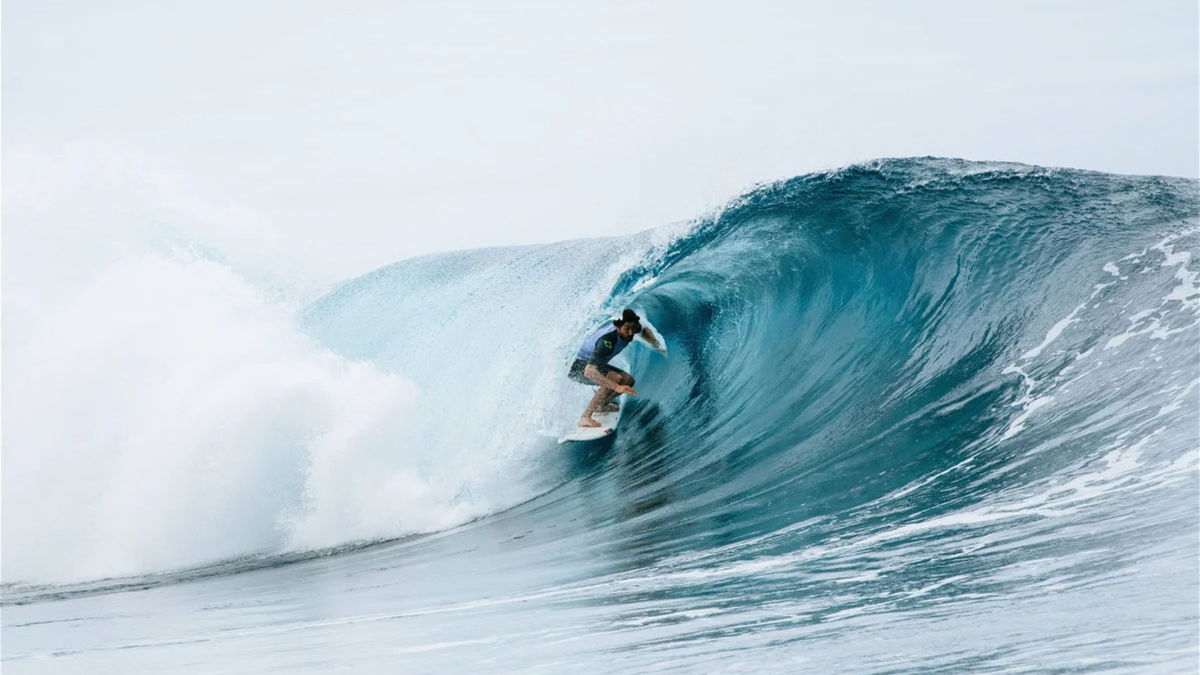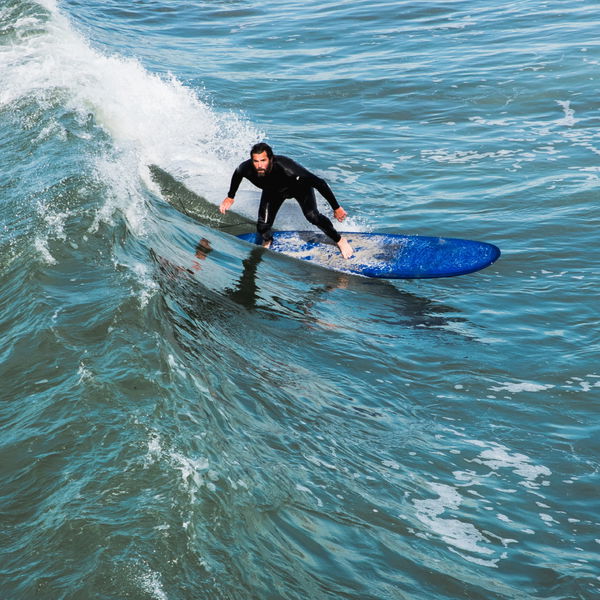

Surfing has been one sport that exudes calmness in the minds of the athletes as they overtake the surging waves. Throughout its course of existence, the activity has embraced the roles of pop culture, hobby, and even that of a sub-culture life. However, while the act can most commonly be taken up as a recreational activity, it holds its prominence as a multibillion-dollar industry.
Watch What’s Trending Now!
Originating in the 1920s, surfing only came to be perceived as a sport in the early 1950s; welcoming men and women for a new challenge alike. Nonetheless, today as the sport proceeds to host numerous championships, it has grown to attract studies and claims from experts in numbers. With increasing popularity, here’s a brief look into a few matters on surfing.
ADVERTISEMENT
Surfing: A boost to the economy?
One of the highlighted parts of Surfing’s journey could be attributed to its pop culture pick-up. In the 1960s, the entertainment hub got acquainted with the practice further pushing it towards a wider audience. Teen movies, movies, and boy bonds shined through the idea of the sun and waves. The influence has led the clothing and fashion industry to act as the major stakeholder in the market. However, one other interesting factor lies behind the boost that surfing is said to provide.
According to the studies led by Griffith University on Australia’s Gold Coast and Andr?s Bello University in Chile, Surfing supposedly contributes about US$1 trillion a year to the global economy. And what lies behind is the mental health improvement of surfers. The report states that ‘Mental health benefits from?surfing comprise 57?74% of the total economic benefits of surfing.‘ The acts involve direct expenditure, property interest, and inbound tourism. However, why has mental health been such a huge factor in the increase of Surfing?
Top Stories
Top-Ranked UFC Star Suspended After Failed Drug Test Forces CSAD Action

Patrick Reed Cuts Ties With LIV Golf as He Commits to PGA Tour With Public Message

Paddy Pimblett Set to Lose Half His UFC 324 Paycheck Amid Hospital Visit and Suspension

Sean McDermott Reportedly Tried to Undermine Josh Allen as Ex-Bills Starter Backs HC’s Firing

Elina Svitolina’s Tactics Set to Test Aryna Sabalenka’s Firepower in Australian Open Semifinal

Sean Payton Makes Triple Firing Decision as Broncos Tackle Poaching Attempt for Coordinator

ADVERTISEMENT

ADVERTISEMENT
The mental health factor in surfing
Surfing has been highly embraced as a recreational activity ahead of all the competitiveness. The exercise it provides, the endlessness, and the environment, attract the surfing community and the rest for a beneficial ride. Following along, researchers claim that people often turn towards surfing as an escape from not just stress revolving around daily life but also the workload experienced. “Outdoor activities such as surfing reduce stress, as long as you can get a few good waves. Surfing has a powerful psychological effect and that has a substantial value,” Professor Buckley of Griffith University said. Moreover, the therapeutic elements of the ocean are proven to improve the mental and physical well-being of surfers worldwide.
ADVERTISEMENT
The known benefits of surfing
Surfing adorns complex body movements and positions to execute the practice in line. The requirement alone gives a full-body workout that engages all muscle groups to burn 250 calories per hour. Further, seawater is said to boost the immune system, soothe allergies, and nourish the skin; states Higher Grounds Management report. As for mental health, the activity covers a wider ground. Depression, anxiety, Trauma, and PTSD are some of the harder battles to fight. But with a walk in the right direction, treatments may provide the help needed.

ADVERTISEMENT
As per reports, regular surfing can present a similar solution to common antidepressants. A focused mind, a smooth, sail, and adrenaline oblige surfers towards the intensity; triggering positive emotions upon succeeding. Further, the statistics state that “individuals who surf are less likely to show symptoms of anxiety and depression when compared to those who are not surfers.” According to research conducted by Deakin University, “those receiving surf therapy had reductions in depression, anxiety, hyperactivity, and inattention symptoms, as well as fewer emotional and peer problems.”?However, the practice hasn’t been immune from facing a downward graph.
ADVERTISEMENT
Surfers who went through a downside
As much as an activity stands to provide beneficial growth, it hasn’t been a place of perfection. Surfing has recorded athletes who suffer from depression anxiety or any mental illness. However, ultimately,? it has been a welcoming place back for and from recovery to quite a few surfers.
1. Gabriel Medina
The No. 1-ranked world champion surfer, earlier in 2022, revealed that he would withdraw from contests to focus on his mental health; stating he wasn’t in a position to compete. ?The past few months have been a difficult time for me personally and it has taken a toll,??he said. The world champion battled matters off the field provided a difficult scene entering the waters. Medina said that it affected the competitions he entered forcing him into hiatus. However, after a break, the surfer seemed to have found a bright side back on the waters.
ADVERTISEMENT
2. Sunny Gracia and Andy Irons
Andy Irons was a celebrated name in the surfing industry during his era. The three-time World Champion had conquered the many stages presented before him prior to succumbing to unkind situations. Sunny Gracia, a mentor and a brother to the legendary surfer opened up about Iron’s tragic story and the speculated causes entailed by their job as surfers. The surfer stated that surfing was the gateway for him but somewhere down the road, it became more of a job, and lost the fun. The surfer went as far as being admitted to the hospital. However, after opening up about it, the surfer found his path to recovery.
ADVERTISEMENT
3. Kelly Slater
The renowned surfer holds the record for being crowned World Surf League champion 11 times. Nonetheless, his celebrated platform could not keep him from slipping into depression. After losing his world title at 21, and experiencing a debt, Slater found himself amid unkind thoughts and actions. The situation obliged Slater to try therapy and anti-depressants. But ultimately, it was surfing that he found solace in. Today, the surfer stands to feature in numerous films and owns even more crowns to his name; conquering the world of serenity and calmness.
Watch this story:?Ride at Your Own Risk: World?s Most Treacherous Surf Destinations3
ADVERTISEMENT
ADVERTISEMENT
ADVERTISEMENT